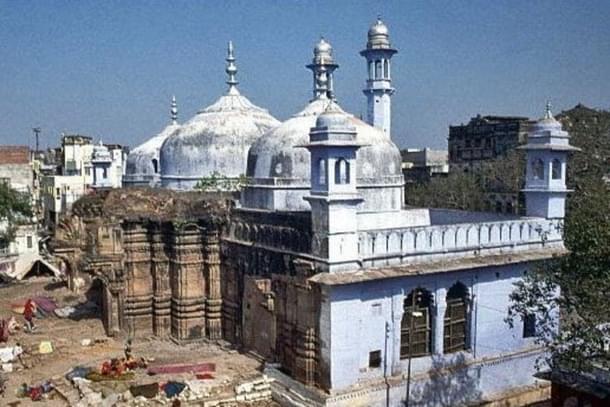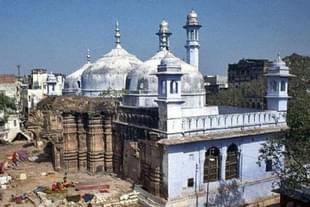News Brief
Supreme Court Seeks Gyanvapi Masjid Committee’s Response On Hindu Side's Plea Seeking ASI Survey Of Sealed Wuzukhana Area
Arjun Brij
Nov 22, 2024, 04:47 PM | Updated 04:47 PM IST
Save & read from anywhere!
Bookmark stories for easy access on any device or the Swarajya app.


The Supreme Court on Friday (22 November) sought a response from the Gyanvapi Masjid Committee regarding a plea filed by Hindu worshippers requesting an Archaeological Survey of India (ASI) inspection of the sealed area of the mosque, where a Shivling is claimed to have been found.
A bench comprising Justices Surya Kant and Ujjal Bhuyan issued notice to the Committee of Management, Anjuman Intezemia Masjid, which manages the mosque.
Senior Advocate Shyam Divan, representing the Hindu worshippers, informed the bench about a separate application to consolidate all related cases and transfer them from the Varanasi District Court to the Allahabad High Court. However, this application was not listed for hearing.
Senior Advocate Huzefa Ahmadi, appearing for the Mosque Committee, argued that the maintainability of the suits under the Places of Worship (Special Provisions) Act 1991, should be prioritised.
The Masjid Committee’s Special Leave Petition (SLP) challenges an earlier Allahabad High Court judgment dismissing their plea to reject the suits under Order 7 Rule 11 of the Civil Procedure Code, citing the 1991 Act.
Ahmadi also highlighted the pending SLP against the High Court’s order permitting an ASI survey. He suggested that all related matters, including the question of the 1991 Act’s applicability, be decided together.
Justice Kant suggested the possibility of consolidating the cases at the District Court level, preserving the High Court as an appellate forum. Divan agreed, stating that resolving this issue is essential.
The bench subsequently decided to list all matters for a consolidated hearing on 17 December. The upcoming hearing will address the legal implications of the 1991 Act and related matters.
In 2022, the Supreme Court had transferred the suits to the Varanasi District Court from the Civil Judge (Senior Division) Court and ordered the sealing of the area (a wuzukhana) where the Shivling was reportedly found. It allowed Muslim prayers in other parts of the mosque.
In 2023, the Court permitted an ASI survey using non-invasive methods, excluding the sealed wuzukhana area. In April 2024, the Court maintained the status quo on performing namaz in the mosque and Hindu rituals in the cellar (tehkhana).
Arjun Brij is an Editorial Associate at Swarajya. He tweets at @arjun_brij





